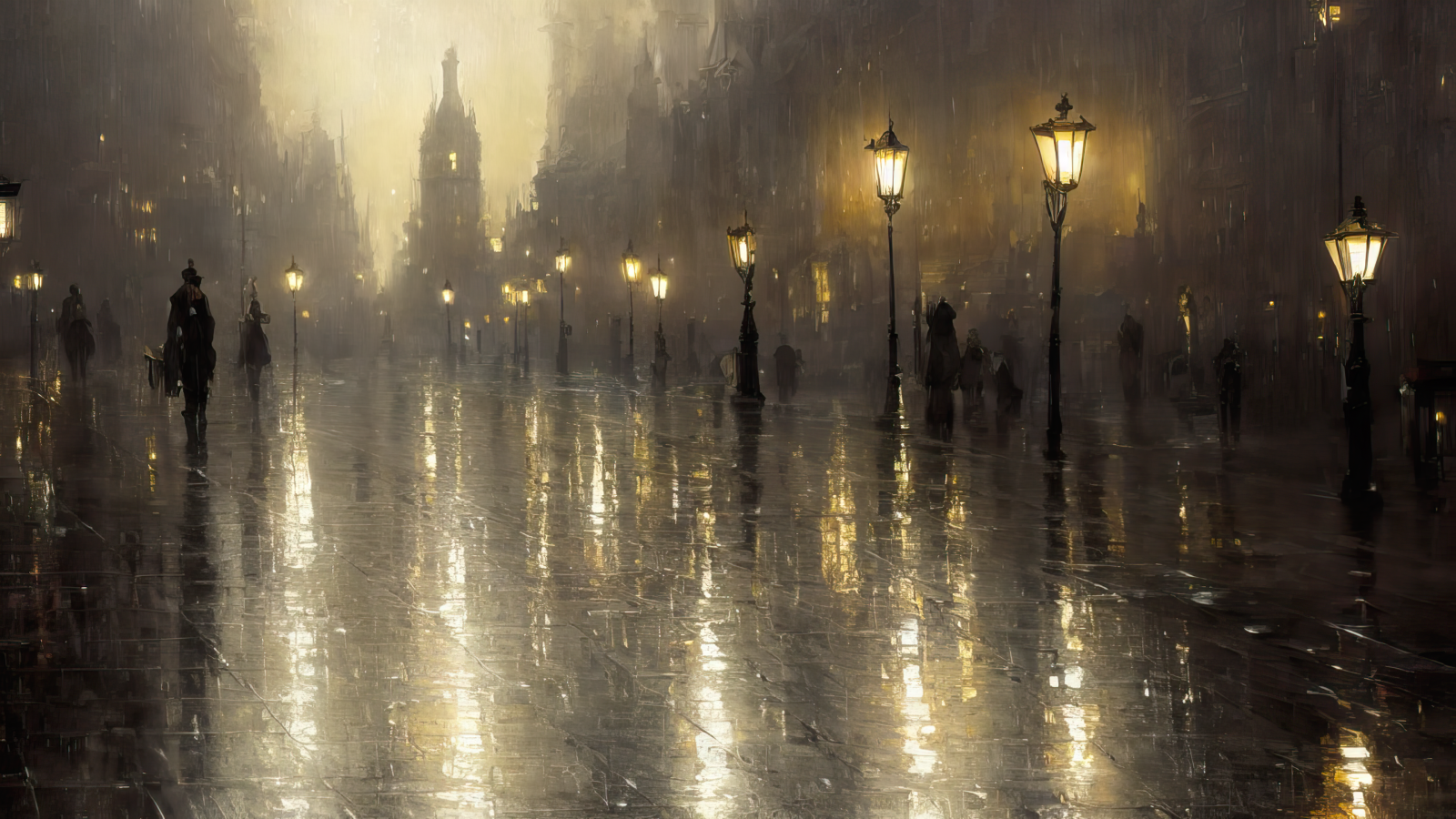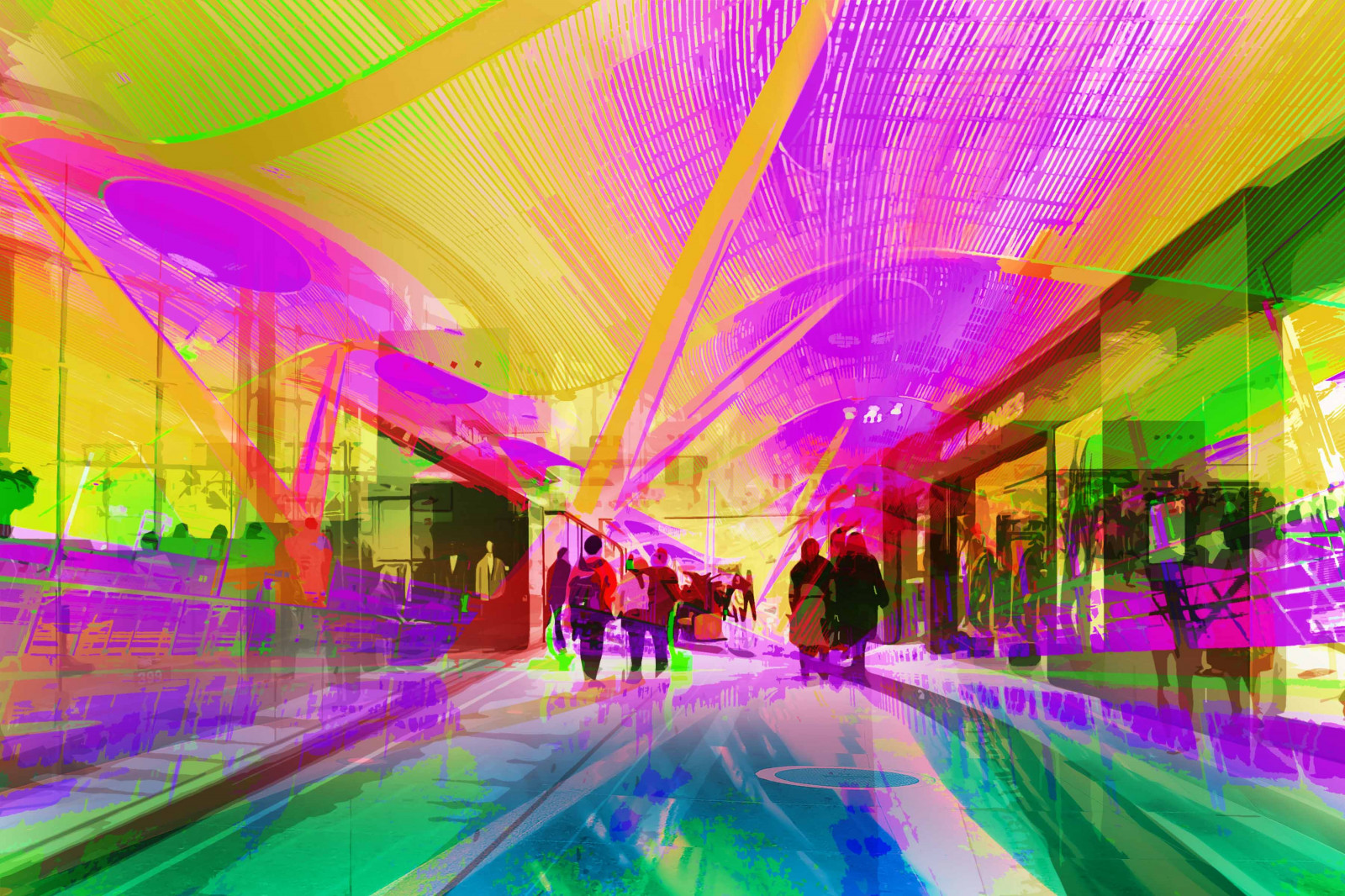When we come across that pure essence of reality, says Chogyam Trungpa, then we are irritated by it. We are irritated by it because we aren’t able to interact with it, or communicate with it. We can’t, in other words, play our games with it or manipulate it and this frustrates our most basic ‘instinct’. This is always going to be the way with reality – if we were able to manipulate it then straightaway it would cease to be reality. The essence of the real is that it is entirely independent of us, of our will. The essence of ‘truth’ is that we ourselves have not had any hand in setting it up to be the way that it is – we’ve not had any hand in it at all and neither has anyone else and that’s how we know it to be the truth. It stands alone. The truth stands alone and it doesn’t need any input from anyone else, obviously enough. We don’t have to run around defending it or supporting it or creating trouble on its behalf.
We might not see this statement as being something that we are going to have any problems with but it actually is – we are all in favour of the truth in principle but when it comes down to it in practical terms we’re not quite as happy dealing with it as we’d like to think we are! As an idea the truth is fine in other words, but the actuality is another matter entirely. So we could say that we are okay about the truth being whatever it is (and that we are quite happy not to project our own expectations or preferences on it) but this is rather a big thing to say, when it comes down to it. How do we know that, after all? Even to assert such a thing implies that we have some sort of idea about what ‘the truth’ is – we are assuming that it won’t turn out to be something that we aren’t going to have a problem with and how can we assume that? The very fact that we say that we’re going to be okay about the truth being what it is (rather than what we expect it to be) is an expectation. We might say that we’re fine about not being able in any way to manipulate or put a spin on reality but in practice this does not turn out to be the case. In practice this is very far indeed from being the case. The awareness that the reality we relate to every day is the result of manipulation of spin-doctoring is not an awareness that we have access to in day-to-day life and we naively imagine – therefore – that we know what ‘the truth’ is. The truth is that we don’t know the truth and are very far from knowing it.
Normally we do manipulate reality; we do put a spin on it (without being aware that this is what we are doing). We manipulate (or spin doctor) reality without thinking and we relate to the world that our thinking has created as being ‘independently true’. It is by relating to the world we have created via our categories of thought that we get to construct our identity; by manipulating reality (or rather by manipulating our perception of reality) we create a familiar ‘version’ of it and this familiar version (which is, we might say, ‘tailor-made just for us’) we reify the idea that we have of ourselves. If I’m relating to reality – so the logic goes – then I must also be partaking in it. I am ‘real by association’, so to speak – by associating myself with reality I also get to be real, and that is what I want. The problem here is however that the version of reality that I am relating to (the version which I have spin-doctored into existence) is not real; as we have already said, what makes reality real is the fact that it exists absolutely independently of our will, of what we will. As Philip K Dick says, “Reality is that which, when you stop believing in it, doesn’t go away.” So what we are relating to, and fondly imagining to be real, isn’t real because it is no more than a manifestation of what we are willing or intending. We have ‘willed it into existence’ and so – by definition – there can be no reality in it.
As soon as the awareness that the world which we take for granted is ‘our own thing’, own construct’, starts to dawn then everything starts to feel eerie. Things begin to feel very spooky and the reason for this is not so much that the world no longer seems real but that we don’t. A tiny degree of feeling as if we are not quite real is actually pleasant, in a giddy kind of way. We are released – or at least partially released – from the bonds that we did not know we had. Feeling unreal, in the initial stages, represents an increase in freedom for the self – it is not bound so much by all the wretched regulations that govern its existence and so more possibilities are revealed for it, in a manner of speaking (not that these possibilities actually exist for the self of course). Freedom doesn’t exist for the self; freedom is something that the self can never utilise without signing its own death warrant. As the awareness continues to dawn on us however we realise that this marvellous freedom does not belong to us and never could belong to us. As freedom reveals itself it reveals itself as ‘the freedom to see that the self is not real’. Of course the freedom to see that the self isn’t real doesn’t belong to that self – how could it? This freedom hasn’t got anything to do with me and that’s precisely why it is so frightening.
It is this quality of ‘not having anything to do with us’ that is so terrifying to us. We could equivalently say that it is this quality of ‘having nothing to do with us’ that makes reality so terrifying to us. Very curiously, therefore, reality is something that we find utterly inimitable to us, just as we find freedom utterly inimitable. Deeply curious as it might be, this is not something that we usually stop to dwell on – wonderment is a luxury we can’t afford to indulge in as it brings us too close to the truth. Instead of pondering as to why we should find reality of freedom so inimitable to us (which is a paradox well worth looking into) we put all our money on defending ourselves from perceiving reality (or perceiving freedom, which is the same thing). If ever we were to focus on this we would immediately smell a rat, so to speak, but ‘seeing that we are running away from reality’ would be just as inimical as seeing reality itself – to relate to ourselves deliberately not relating to reality is every bit as frightening as relating to reality would be!
To relate to a reality that has no relevance at all to us (to our assumptions, to our ideas about the world) is to relate to our own nonexistence, paradoxical as this may sound. Firstly, I start to feel ‘unreal’ and then I start to realise that this feeling is itself unreal since there is no one there to be feeling it, and this is the radical freedom of which we have been speaking. This is the freedom which comes out of seeing that reality has absolutely nothing to do with us, and that we can’t manipulate it, or put a ‘spin’ on it, no matter how hard we try; if we could manipulate or spin it, then it wouldn’t be ‘free’, clearly enough; when something is being controlled then – by definition – it isn’t free. It isn’t free from the wishes or intentions of the one who is doing the controlling; it isn’t free from the artificial type of order that is being imposed upon it.
Order that is being imposed – which is to say, ‘logical structure’ – comes from one source and one source only and this is the thinking mind. The thinking mind is ‘logical structure that is being imposed upon the world’ – that’s what thinking is all about. When that logical structure replaces what we might call ‘open-ended reality’ and substitutes itself for it, and this gives rise to the Thought-Created World, the Mind-Created Virtual Reality, and this is generally the only reality that we ever know about. This is the Literal World – the world where ‘everything is what it seems to be,’ or ‘the world where everything is what thought says it is’. This closed world is ultimately nothing more than the Mind-Created Self being projected outwards in the form of a seamless wall-to-wall projection; the self is the arbitrary logical structure that is being imposed upon the world, therefore. When the self sees its own assumptions being reflected uninterruptedly back at it then it’s ‘existence’ is automatically confirmed and it can carry on busying itself with its affairs, whatever these might happen to be, unaffected by any sense of radical doubt with regard to this set-up.
The principle here is very simple and easy to express – just as long as I am living in a world that is exactly what it appears to be, or is exactly what thought says it is, then I too am going to be exactly what I take myself to be, exactly what thought defines me as being, and this is precisely what I want. The concrete identity has to be literally true or else it isn’t ‘the concrete identity’. This is why they can be no such thing as genuine humour as far as the thought-created self is concerned – humour involves looking at things in more than one just the one way and this is exactly what the concrete self can’t afford to do – not if it wants to remain concrete, that is! This is ‘a world with a lid on it’ therefore, this is the world where things had to stay the way they are said to be, or supposed to be, forever. There is a script, there is ‘an official narrative’, and things have to accord with that narrative. We have to follow the rules and obey the conventions. In short, we have to ‘play the game’, and as a collective we going to take against anyone who can’t (or won’t) do this. Not playing the game is very bad form.
This represents a major current or tendency in human life, of course – what we talking about here is conservatism, in whatever guise it might appear. Whenever there is an ‘orthodoxy’ to which we are expected to adhere, then this is what is going on; ‘conservatism’ – in whatever guise – is always about ‘conserving the self’. It is understood that we are protecting and cherishing the ‘values of the past’ but the truth of the matter is that we are protecting and cherishing the literal or concrete identity. There is no value in the literal sense of self however, no matter how much we may cherish or adulate it; the literal or concrete sense of self is simply denial – we are in denial of any other possibilities other than the ones which we already ‘know’ about, other than the officially sanctioned ones. We are in absolute denial of any better way of life, any way of life that is more expansive, more creative, more light-hearted, and more humorous. Institutional religion – perhaps more in the past than in the present day – very much has the function of ‘putting a lid on things,’ of defining reality for us in a brutally compulsory way. The mediaeval Christian church very effectively suppressed change in human affairs for over a thousand years – the official line being that the Church’s dogmas are being upheld and God’s will is being done, the true agenda was however to protect the literal sense of self by inducing a compulsory state of ‘psychostasis’. To deviate was – by definition – to disobey God and play into the hands of Satan. To speak God here is ironic in the extreme however – since when was it God’s plan to induce a sterile, life-denying state of psychostasis? That is Satan’s work, if anything (which isn’t of course to say that Satan’s work isn’t part of God’s plan too, when it comes down to it). ‘Freezing the world’ so the natural seasons cannot prevail is White Witch’s trick in The Lion, the Witch and the Wardrobe, and the motivation behind this is always ‘fear of life’.
This modern age of ours is often said to be ‘fast moving’ and all about change, but what we really talking about here is ‘change on the outside’, and more especially – the exponentially-increasing development of technology. This is not at all the same thing as ‘change on the inside’ however and it is important not to be fooled into thinking that it is. As Alan Watt says, technology – for the most part – is all about ‘closing the gap’ between our wishes and the triumphant realisation of our wishes. We want to get from A to B and technology means that we can do this faster than ever before. If we want to communicate then the means by which we can do this is hugely enhanced – which doesn’t mean that the quality of our communications improved, of course! Similarly, getting from A to B faster – perhaps almost instantaneously – hardly represents a profound change in the way we are looking at the world. It could be said therefore that technology ‘allows us to do stupid things faster, or more effectively’. Technology is control and control acts so as to stabilise the controller. The more control is handed to us on a plate, the more we transform the world into a carbon copy of our own assumptions, our own thoughts and ideas about how the world should be. What would be the point of ‘control’ otherwise? Naturally this is what we are trying to do.
By this trick we can ‘conserve the self’, therefore. Living in the seamless world of its own unexamined assumptions is how the self gets to exist, is the only way that it can get to exist. The self and its tailor-made projections constitute a tautology, in other words, and if anything were to come along to ‘disturb’ that tautology, or punch a hole in it’, then this would be a cause for very great consternation for us! The only rule that really matters to us is that we should not undermine our taken-for-granted way of looking at things, and the more we relinquish ‘the control of reality’ the faster and more vicious that ‘undermining’ process is going to be. We experience the undermining of our habitual way of looking at the world as being the ultimate evil – it is the ‘ultimate evil’ simply because it exposes us to the truth….





